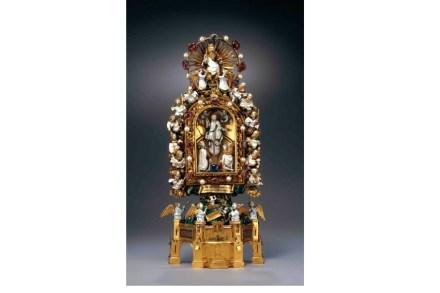Beyond belief | 27 August 2011
The subtitle of Treasures of Heaven is ‘saints, relics and devotion in medieval Europe’. The key words here are medieval and Europe. The subtitle of Treasures of Heaven is ‘saints, relics and devotion in medieval Europe’. The key words here are medieval and Europe. There’s not much from England because we suffered the autocratic cleansing of the Reformation in the 16th century, and much of our native tradition of what was then dubbed idolatry was destroyed or swept away. And because our Church was reformed in this way, those of a C of E persuasion tend to be suspicious of relics and devotional aids. Our unadorned worship does not encourage










